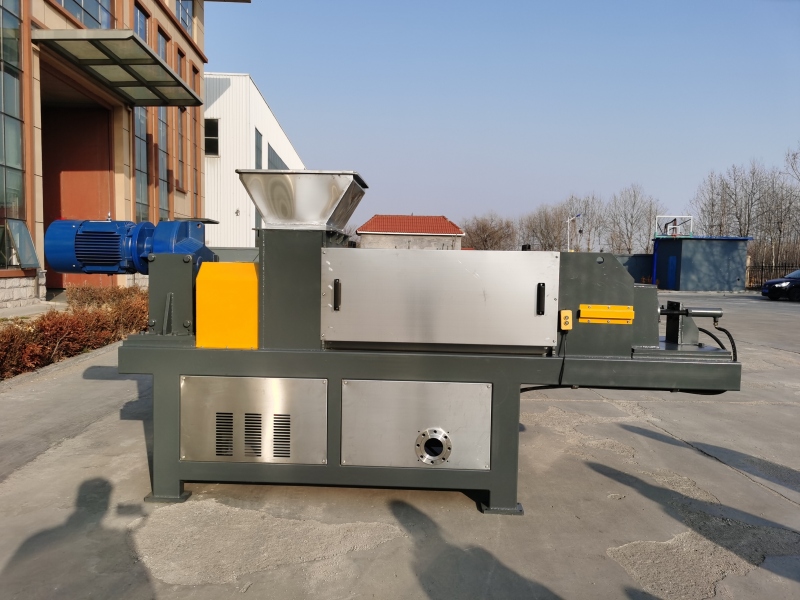
In food processing plants, efficient waste management is crucial to minimize environmental impact and operational costs. One key aspect of this process is the effective disposal of food waste. Waste food dewatering machines play a vital role in this regard by significantly reducing the moisture content in food waste, thereby facilitating easier disposal and contributing to sustainable waste management practices.
Functionality of Waste Food Dewatering Machines:
Moisture Reduction:
Waste food dewatering machines are designed to extract excess moisture from food waste, resulting in a drier and more manageable residue. This reduction in moisture content not only decreases the weight of the waste but also helps prevent the growth of harmful microorganisms that thrive in moist environments.
Volume Reduction:
By removing water from food waste, dewatering machines contribute to a substantial reduction in volume. This is particularly advantageous for food processing plants dealing with large quantities of waste, as it minimizes the space required for storage and transportation, leading to more cost-effective waste disposal.
Improved Handling and Transportation:
Dewatered food waste is easier to handle and transport. The reduced weight and volume make it feasible to transport larger quantities in a single load, optimizing logistics and decreasing the environmental footprint associated with waste transportation.
Enhanced Resource Recovery:
The dewatering process not only aids in waste disposal but also facilitates resource recovery. The dewatered food waste can be repurposed for various applications, such as composting, anaerobic digestion, or even as a source of bioenergy. This aligns with the principles of circular economy and sustainability.
Compliance with Environmental Regulations:
Food processing plants must adhere to strict environmental regulations regarding waste disposal. Utilizing waste food dewatering machines helps these facilities meet compliance standards by efficiently managing and reducing the environmental impact of their waste streams.
Cost Savings:
Implementing waste food dewatering machines can lead to cost savings for food processing plants. The reduced weight and volume of the waste contribute to lower disposal and transportation costs. Additionally, the potential for resource recovery can provide alternative revenue streams.
Conclusion:
Waste food dewatering machines play a pivotal role in the overall waste management strategy of food processing plants. By effectively reducing moisture content, volume, and weight of food waste, these machines contribute to more sustainable and cost-efficient waste disposal practices. Embracing such technologies aligns with the growing emphasis on environmental responsibility and resource conservation within the food processing industry.




If your company wants to establish a business relationship with us, please briefly describe the cooperation intention and send an email to:chuantaiscrewpress@gmail.com























































































![[list:title]](/static/upload/image/20240528/1716877114510915.jpg)